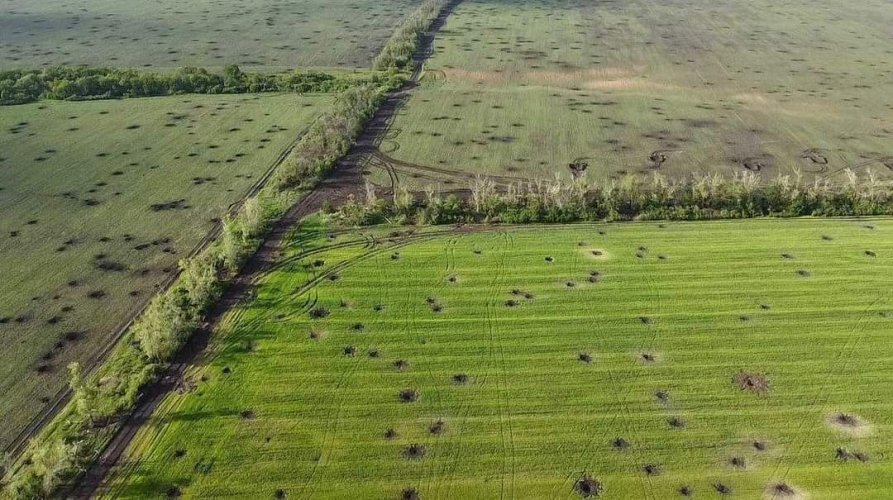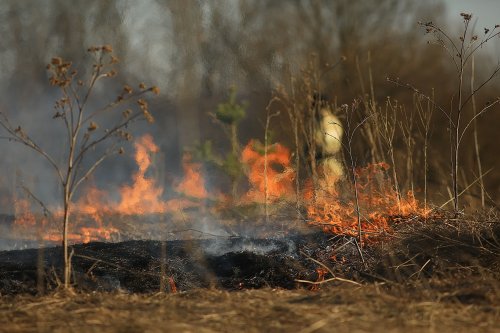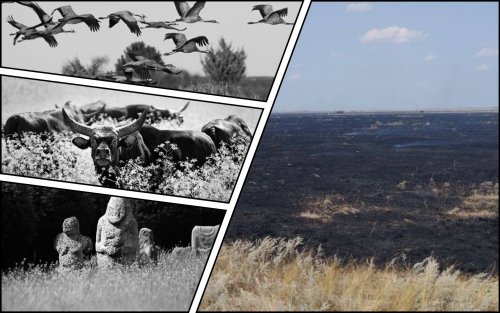The Russian Federation's war of aggression against Ukraine, in addition to destroying people's lives, poses a threat to the health of Ukrainians in the long run - due to the huge damage to the Ukrainian environment, in particular due to soil pollution.
How the fighting is pouring on Ukrainian soil - read the material EcoPolitics.
War crimes against the environment are not just about harming nature. War can cause many early deaths in the future due to polluted water, land, air, and so on. As a result of explosions, harmful substances are released into the air, which, due to the fact that they do not stay in the air for a long time, come in the form of precipitation and accumulate in the soil. In addition, areas contaminated with explosives and mined areas will be a threat for decades.
Contamination of the fertile soil and rocks is the result of many destructive processes, including shell rupture, leakage of pollutants and hazardous substances from damaged tanks and waste due to destruction of filtration field dams, destruction of treatment or hydraulic structures. In addition, soil and groundwater are contaminated with cadaveric poison due to mass deaths of people and animals. All these environmental disasters lead to the entry of chemicals into the soil.
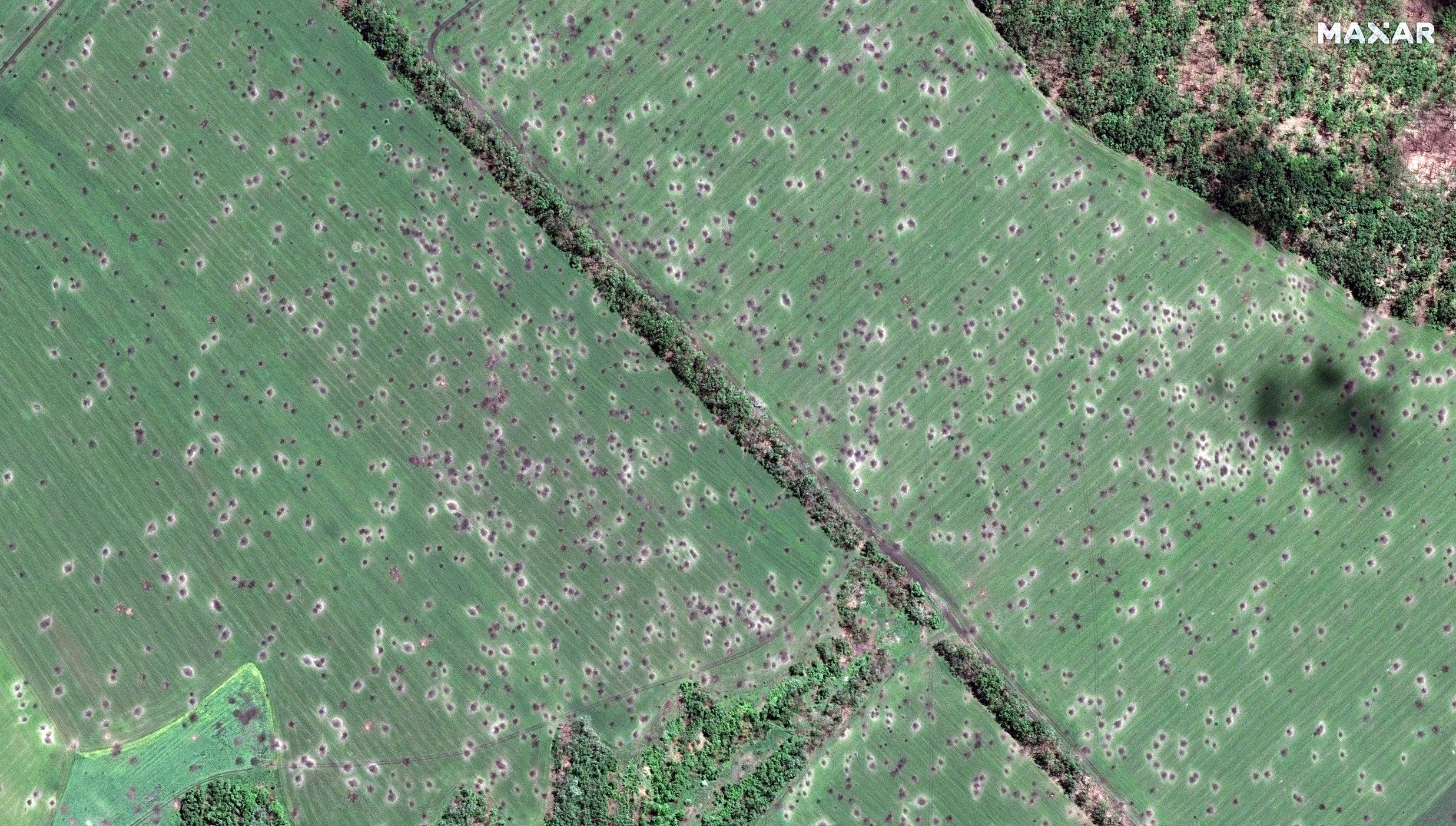 Photo: Maxar
Photo: Maxar
Damage from chemical contamination of soils for both humans and living beings explained Oleksiy Vasyliuk, Head of the Ukrainian Environmental Protection Group (UNCG).
He noted that during the explosions in the soil, in addition to heavy metals, a lot of sulfur remains. Part of this chemical element, which is a component of much of the ammunition, remains in powder form in the funnels and around, and in contact with precipitation is converted into sulfuric acid.
Someone came up with such a "lyrical" term that after the war there is a scorched earth. So, scorched earth is a very realistic term, which means that this earth is scorched not by fire but by acid. And this is very bad, in particular, for soils, because in this acid burn those millions of organisms that form the topsoil, form an ecosystem," said Vasilyuk.
The expert noted that it is necessary to prepare for the consequences of pollution of Ukrainian soils in the postwar period.
"We do not have to promise the world to restore all the contaminated fields immediately after the liberation. France, Argentina, Germany, almost all countries of the former Yugoslavia have withdrawn huge areas from agricultural cultivation, some of them are still not cultivated", said the expert. "And in Ukraine today there are simply unprecedented scales of attraction of ammunition during military operations. Much of the contaminated land needs to be taken out of circulation”.
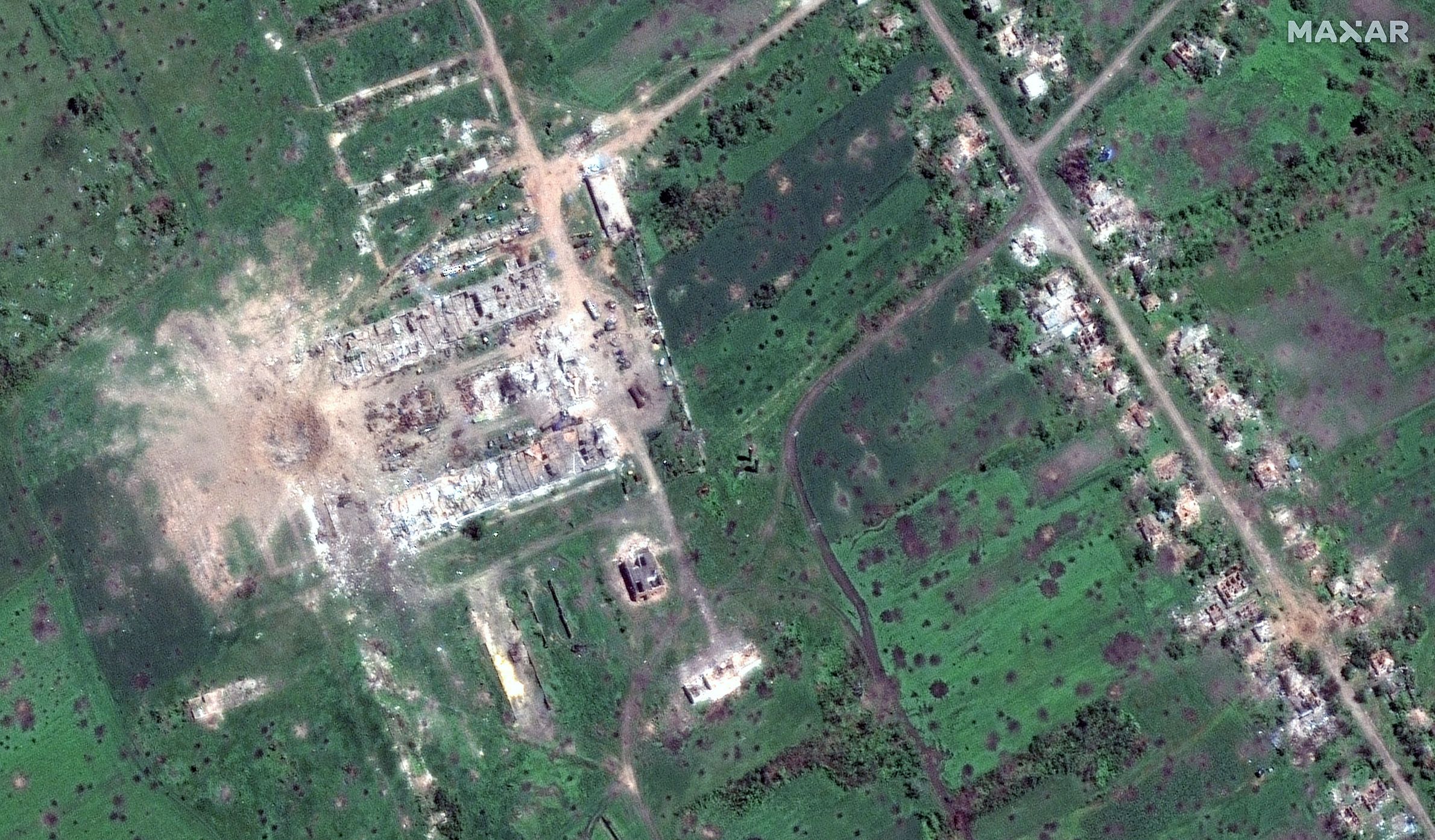 Photo: Maxar
Photo: Maxar
Formerly Truth Hounds documentary and analyst Marina Slobodyanyuk told that the residents of the eastern regions say about the impact of the war on the soil.
“During our missions and field trips, we talked a lot with the locals. And they themselves told us how much the condition of the same soils has deteriorated, for example, how much they feel that the environment is changing under the influence of war. I can even read to you now. And we added this quote to the report: "After the shelling, the ground becomes dead. After the winter shell, all the vegetables had to be thrown away in the summer. Apricots became small, wrinkled," Slobodyanyuk was quoted as saying.
In general, experts of the public organization "Ecodia" allocated several factors that lead to pollution of Ukrainian soils.
1. Technology
The movement of heavy equipment, construction of fortifications and hostilities damage the ground cover. This leads to degradation of vegetation and increases wind and water erosion.
On a smaller scale (but with a greater variety of impacts), burnt tanks, vehicles, downed planes and other remnants of hostilities on Ukrainian soil are also sources of pollution.
2. Chemical pollution from shelling and missiles
During the detonation of missiles and artillery shells, a number of chemical compounds are formed: carbon monoxide, carbon dioxide, water vapor, brown gas, nitrous oxide, nitrous dioxide, formaldehyde, cyanic acid vapor, nitrogen, and large amounts of toxic organics, oxidized around. wood, turf, structures. In the atmosphere, oxides of sulfur and nitrogen can cause acid rain, which changes soil pH and causes burns to plants to which conifers are particularly sensitive. Acid rain has a negative effect on the human body, other mammals and birds, affecting the condition of mucous tissues and respiratory organs.
3. Debris ammunition
Metal fragments of shells that enter the environment are also not safe and completely inert. Cast iron with steel impurities is the most common material for the production of ammunition and contains not only standard iron and carbon, but also sulfur and copper. These substances enter the soil and can migrate to groundwater and as a result enter the food chain, affecting both animals and humans.
4. Contamination with fuels and lubricants
Contamination of soils with fuels and lubricants and other petroleum products is due to the movement and damage of land military equipment. In soils impregnated with fuels and lubricants, water permeability is reduced, oxygen is displaced, biochemical and microbiological processes are disrupted. As a result, the water, air and nutrient regimes deteriorate, the root nutrition of plants is disrupted, and their growth and development are inhibited, leading to death.
Earlier EcoPolitics wrote which environmental crimes against the environment of Ukraine, carried out by Russian armed forces, was recorded in May.

